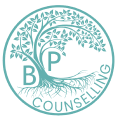Introduction
Embarking on a therapy journey is a significant step towards self-discovery and healing. However, finding the right therapist can be as crucial as the therapy itself. This blog post outlines three vital steps to help you find a therapist who resonates with your personal needs and goals.
Step 1: Assess Your Needs and Preferences
Before diving into the sea of therapy options, it’s important to understand what you’re looking for in therapy. Ask yourself:
- What issues do I want to address? (e.g., anxiety, depression, relationship issues)
- Do I prefer a particular therapeutic approach? (like cognitive-behavioral therapy, psychoanalysis, etc.)
- What qualities would I like in a therapist? (such as empathy, directness, experience in specific areas)
Reflecting on these questions will give you a clearer picture of your needs and preferences, which is the first step in finding a therapist who can truly assist you.
Step 2: Research and Gather Information
With a clear understanding of your needs, begin researching potential therapists. Here’s how:
- Use Trusted Resources: Start with reputable directories or websites that list licensed therapists. Look for therapists who specialize in the issues you’re facing.
- Read Reviews and Testimonials: These can provide insights into the therapist’s style and effectiveness.
- Check Credentials and Experience: Ensure the therapists you consider are licensed and have experience relevant to your needs.
- Consider Logistics: Factor in location, session availability, and whether they offer teletherapy, to find a therapist that fits into your life seamlessly.
Step 3: Schedule Consultations
Many therapists offer initial consultations, often at no cost. These meetings are crucial in:
- Gauging Compatibility: It’s essential that you feel comfortable and connected with your therapist. Use this time to see if their style and personality align with your preferences.
- Discussing Your Goals: Clearly communicate your therapy goals and see how the therapist responds. Their approach should resonate with your objectives.
- Asking Questions: Don’t hesitate to ask about their experience, methods, and how they plan to help you.
- Remember, it’s okay if the first therapist you meet doesn’t feel right. It’s important to trust your instincts and continue your search until you find the right fit.
Conclusion: Take Your Time
Finding the right therapist is a personal journey. Take your time, trust your instincts, and remember that this is a significant step towards your well-being. The right therapist is out there, and with these steps, you’re well on your way to finding them.
